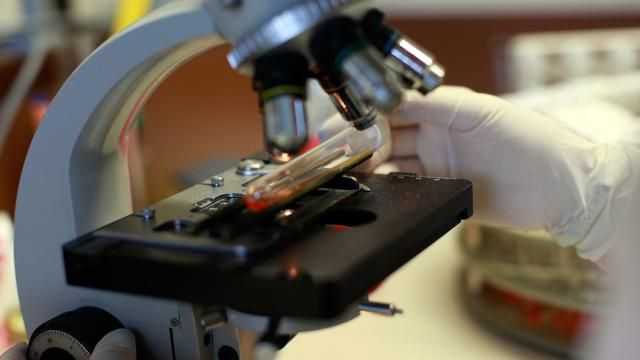Good news, science folk: Most of America thinks you’re pretty ok and worth listening to. According to a new report out Saturday by the Pew Research Center, a majority of Americans trust scientists, and to a greater degree than any other public-facing profession in the country. What’s more, the America’s confidence in scientists has actually increased in the past few years. Good for them.
The findings come from an American representative survey conducted by Pew of nearly 4500 adult Americans this January.
According to the survey, 86 per cent of Americans have at least a “fair amount” of confidence in scientists as a whole to act in the best interests of the public, while 35 per cent had a “great deal” of confidence in them. That represents a substantial increase from the 76 per cent who said the same in 2016.
And in fact, science is seemingly now the most trusted institution in the country, with the military (82 per cent) and grade school principals (77 per cent) close behind. Meanwhile, the public continues to largely distrust the media (47 per cent), CEOs and business leaders (46 per cent), and politicians (35 per cent).
“It’s difficult to pin down the reasons for the upturn in public confidence,” Cary Funk, director of science and society research at Pew Research Center, told Gizmodo via email. “One thing to note is that the increase in confidence occurs among both Democrats and Republicans.”
That’s not to say there weren’t differences to be found among groups, though.
People who identify as or lean Republicans, for instance, reported less confidence in scientists (82 per cent) than did those who identify as or lean Democratic (91 per cent). And when people were asked about specific areas of science — six in total — Republicans were much less likely to have a positive view of environmental researchers (40 per cent) than Democrats (70 per cent).
A larger percentage of Democrats also believed that scientists should be actively involved in public debates about scientific policy, and that they had greater insight on these issues than the average person. That almost certainly reflects the partisan divide over climate change and the environment in general. In other fields of science, though, there was no such partisan gap.
“There are wide political divides on beliefs about climate, energy and environmental issues. Such divides have been present for more than a decade. But divisions over GM foods, childhood vaccines, and other science-related issues fall on along other lines, not party affiliation,” Funk said.
While the overall trend is great, there are aspects of science that the public is still sceptical about. Less than 20 per cent, for instance, thought scientists in general were usually upfront about their potential conflicts of interest with industry, and they had the least confidence in nutrition scientists (the cynics aren’t wrong).
Few people in general, but especially few minorities (as low as 11 per cent), believed that scientists regularly admitted and took responsibility for their mistakes. That makes sense in the historical context of long-running discrimination and exploitation of minorities by scientists and doctors.
The Tuskegee study ran by the U.S. government from the 1930s to the 1970s, for instance, deliberately left hundreds of African Americans untreated with syphilis, even hiding their diagnosis from them.
The survey’s results do suggest some ways that scientists can continue to keep or improve the public’s trust. “As the public thinks about the factors which influence their trust, the findings were clear,” Funk said. “A majority says when they hear about research findings where the data are openly available, it increases their trust. Similarly, about half the public says they trust research findings more if findings have been given an independent review.”
On the other side of things, learning more about science understandably makes us more willing to trust scientists. While only 75 per cent of people with relatively little scientific knowledge trusted scientists, the same was true of 93 per cent of people with relatively high scientific knowledge.
